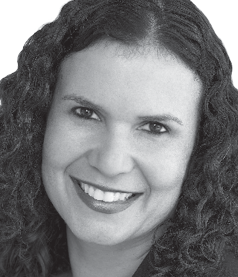It’s happened to the best of us: We’ve been told words that sting, handled experiences that crumple our self-esteem, and met people who let us down or left us feeling defeated. To move past disappointment and hurt, try these tips:
Related: 13 Happy Quotes to Lift Your Spirits
1. Have empathy for the other party.
Cruel words, destructive behavior and thoughtless actions all stem from a dark place in the other person. Recognize this, then forgive them.
2. Forgive yourself.
If your confidence is down, you might beat yourself up for not being stronger, for the role you played in the toxic situation, or for choosing a relationship with someone who hurt you. Aim to understand the roots of your actions and forgive yourself. It’s only human.
3. Identify a fear related to the lost confidence.
When you do, take action to burst through it. For example, if someone said something derogatory about your body, that has left you afraid of going to the beach in a swimsuit, commit to going to the beach.
4. Decide whether the offending words or actions have merit.
If you were fired for poor job performance, get real with yourself. If your work really was poor, own that. Take steps to improve, or decide on a career change. You might also conclude that the firing was not warranted. If it wasn’t, make a list of your professional successes such as happy clients and bosses, and focus on surrounding yourself with colleagues who appreciate your skills and work ethic.
5. Focus on your tribe.
Whether they’re friends, colleagues or family who believe in you, embrace these people and identify what they love about you. That is truth. Believe it.
“You gain strength, courage and confidence by every experience in which you really stop to look fear in the face. You are able to say to yourself, ‘I lived through this horror. I can take the next thing that comes along.’ ”
—Eleanor Roosevelt
 Tanya Van Court
Tanya Van Court
44; founder and CEO of iSow, a personal-finance platform for young people; Brooklyn, New York
When I was first raising money for iSow, I pitched an investment group of older men who had an average net worth of $50 million. They completely dismissed my business idea and said they didn’t understand it. If they wanted to buy their kid a bike, they said, they’d just buy their kid a bike. If their child was going to college, they’d just pay for it. I was devastated for a while. I wondered whether I would ever get funding or whether my idea was even viable. A week later I pitched a group of female investors who immediately understood iSow, loved it, and then tested with focus groups of other moms, who also loved it. Ultimately, I raised $600,000, have been featured on Good Morning America and am now raising a seed round. I learned that all of voices that weigh in on your business are not equal, and you have to find people to support you as you start and grow, and when you market to your customer base.
 Janét Aizenstros
Janét Aizenstros
37; CEO and founder of Ahava Media Group and author of the children’s book series Why Mommy Loves; Guelph, Ontario
In 2010 I left my marriage and my corporate job, and moved back to my hometown, where I became a stay-at-home mom. My identity as a professional was devastated and the end of my relationship left me questioning my faith in myself. Being financially dependent on my ex, while living below the poverty line and managing $50,000 in debt, made me question how my two sons and I could survive. Eventually I started spending time in Toronto, where I met a soul mate, who encouraged and supported me, and I tapped into believing in my higher power and the law of attraction. By 2013 I landed my first major animation project that gave my company an abundant injection of money, and today I am blissfully in love, the founder of a multinational online media conglomerate and living a life of financial freedom.
 Jae Kim
Jae Kim
33; founder of Chi’Lantro BBQ, which was featured on ABC’s Shark Tank; Austin, Texas
I moved to the U.S. from Korea when I was 12. English and the cultural differences made me feel inferior to my peers, who made fun of my grammar and accent whenever I spoke, compounding my natural introvert tendencies. I became incredibly cautious about how and what I said to people to the point where I would just keep to myself. Eventually I learned to appreciate the importance of understanding different cultures, and I forgave people who are inclined to put others down—that is really their insecurity, not something that should affect how I view and value myself. I forced myself to be more vocal and speak my mind even though I was completely out of my comfort zone. I learned the importance of loving and embracing myself for who I am. Practicing this over time helped me develop a good sense of humor, to be able to laugh at myself, and really helped me find the good in myself and others.
Related: 4 Ways to Be More Positive
This article originally appeared in the March 2017 issue of SUCCESS magazine.






